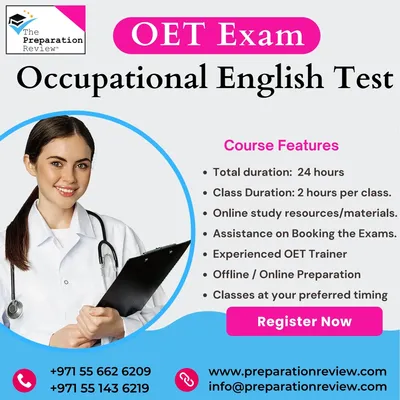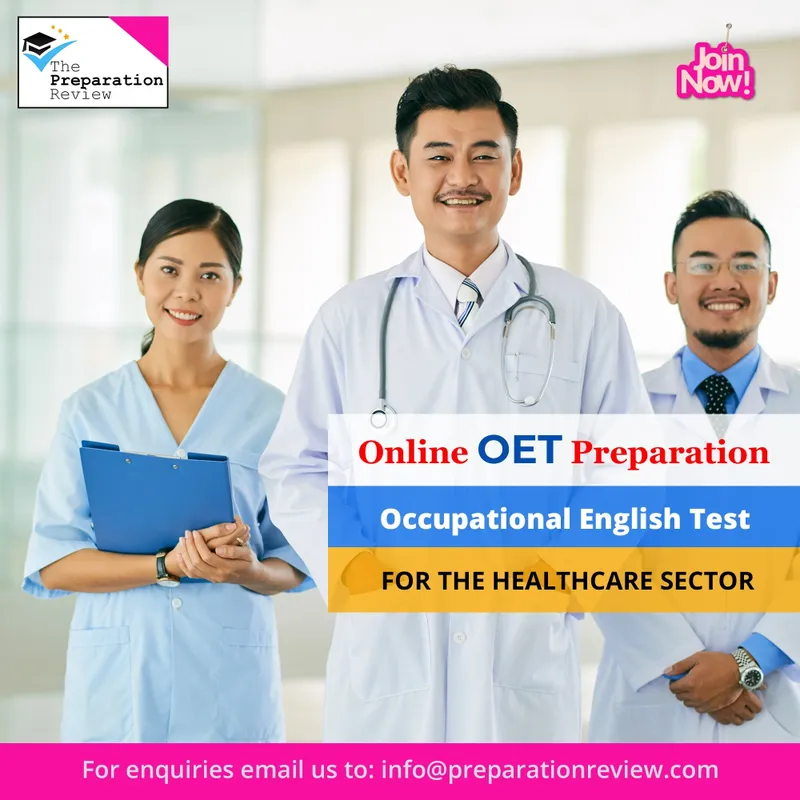The Occupational English Test, commonly known as OET, is an internationally recognized English language proficiency test designed specifically for healthcare professionals. It assesses the language skills of healthcare practitioners who wish to work or study in an English-speaking environment, primarily in the fields of medicine, nursing, dentistry, pharmacy, and allied health.
OET was developed to ensure that healthcare professionals have the necessary language skills to communicate effectively with patients, colleagues, and other healthcare professionals in a healthcare setting. It evaluates candidates' abilities to understand and use English in real-life workplace situations, making it a vital assessment tool for both professionals seeking employment opportunities and regulatory authorities responsible for ensuring the language proficiency of healthcare workers.


OET is suitable for healthcare professionals at various stages of their careers, including:
OET is available for the following 12 professions:
By achieving a high score in OET, healthcare professionals can demonstrate their English language proficiency and improve their career prospects in English-speaking countries
In summary, OET is a specialized English language test that plays a crucial role in the lives of healthcare professionals worldwide. It enables them to meet language proficiency requirements, pursue their careers, and provide safe and effective healthcare services in English-speaking environments
OET offers versions tailored to various healthcare professions, including OET Medicine, OET Nursing, OET Dentistry, OET Pharmacy, and OET Allied Health. This specialization ensures that candidates are assessed on language skills relevant to their specific profession.
Real-Life Scenarios: OET is designed to simulate real-life healthcare scenarios, such as patient consultations, medical reports, and workplace communication. This practical approach makes it highly relevant to the healthcare field.
Four Sub-Tests: The OET exam consists of four sub-tests, each assessing a different language skill: Listening, Reading, Writing, and Speaking. These sub-tests comprehensively evaluate a candidate's ability to understand and communicate in English.
Global Recognition: OET is recognized by healthcare regulatory bodies, employers, and educational institutions in numerous countries, including Australia, the United Kingdom, the United States, Canada, and New Zealand. A high OET score is often a requirement for professional registration or employment in these countries.
Authentic Materials: OET materials are based on real healthcare documents, ensuring that candidates encounter language and terminology commonly used in their profession.
Human-Centric Assessment: The OET Speaking and Writing sub-tests are assessed by trained healthcare professionals who understand the specific language requirements of the healthcare sector. This human-centric approach ensures fairness and accuracy in grading.
Who Should Take OET?OET is suitable for healthcare professionals at various stages of their careers, including:· International medical graduates (IMGs)· Nurses and midwives· Dentists and dental hygienists· Pharmacists· Radiographers· Occupational therapists· Dietitians· Speech therapists· And many other allied health professionals by achieving a high score in OET, healthcare professionals can demonstrate their English language proficiency and improve their career prospects in English-speaking countries.In summary, OET is a specialized English language test that plays a crucial role in the lives of healthcare professionals worldwide. It enables them to meet language proficiency requirements, pursue their careers, and provide safe and effective healthcare services in English-speaking environments.
OET consists of four sub-tests with an emphasis on communication in medical and health professional settings: